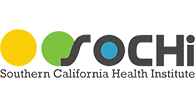In this blog post, Discover the key reasons why medical billing and coding are so important to both patients and healthcare providers.
The healthcare industry relies heavily on medical billing and coding professionals to ensure that doctors and hospitals are paid accurately and on time. Medical billing and coding is the process of translating medical procedures and diagnoses into codes that can be recognized by insurance companies and other payers.
In today’s increasingly complex healthcare system, medical billing and coding are essential in ensuring patients receive the care they need. In contrast, healthcare providers are fairly reimbursed for their services.
Learn Why Is Medical Billing and Coding Important?
Medical billing coding guidelines are a crucial aspect of healthcare. They provide a standardized system for classifying medical procedures and diagnoses so that healthcare providers can communicate effectively with insurance companies.
This consistency ensures that healthcare providers are appropriately reimbursed for their services. Additionally, medical billing coding guidelines help to prevent fraud and abuse within the healthcare industry.
By requiring proper documentation and accurate coding, healthcare providers can ensure compliance with federal regulations and avoid costly penalties. In short, medical billing coding guidelines are an essential piece of the healthcare puzzle that helps to ensure quality care for patients while protecting healthcare providers and insurers alike.
The Importance of Medical Billing and Coding: 4 Key Reasons You Need to Know
Learn why is Medical Billing and Coding important and crucial! Explore the top 4 key reasons behind its immense importance.
1. Accurate Reimbursements:
One of the primary reasons why medical billing and coding is so important is that it ensures that healthcare providers are paid fairly for the services they provide to patients.
Medical billing and coding professionals work to accurately translate medical procedures and diagnoses into codes that can be recognized by insurance companies and other payers. This ensures that healthcare providers are reimbursed for the full amount of their services and that patients are not left with unexpected bills.
2. Compliance with Regulations:
Another important aspect of medical billing and coding is compliance with government regulations. There are a variety of federal and state laws that healthcare providers must comply with to participate in government-funded healthcare programs like Medicare and Medicaid.
Medical billing and coding professionals play a critical role in ensuring that healthcare providers comply with these regulations, which can be complex and ever-changing.
3. Increased Efficiency:
Medical billing and coding also helps to increase the efficiency of healthcare practices. By streamlining the billing process and ensuring that claims are accurate and complete, medical billing and coding professionals help healthcare providers to reduce the time and resources they spend on administrative tasks. This allows providers to focus more on patient care and less on paperwork.
4. Improved Patient Care:
Finally, medical billing and coding are crucial to improving patient care. Accurate medical coding ensures that healthcare providers have the information they need to provide the best possible care to their patients. Medical coding also helps providers track patient outcomes and identify areas for improvement. By enabling better healthcare delivery, medical billing, and coding plays a key role in improving patient outcomes and overall satisfaction.
The Medical Billing and Coding Career Path
The field of medical billing and coding is a vital part of the healthcare industry, providing the backbone that keeps practices running smoothly. This career path is ideal for those who are detail-oriented and possess strong organizational skills. The job primarily involves managing patient records, dealing with insurance companies, and assigning codes to medical procedures and diagnoses.
It is important to note that medical billing and coding professionals must have a solid understanding of medical terminology, anatomy, and healthcare laws and regulations. This career offers the opportunity to work in a variety of healthcare settings and can be fulfilling for those who enjoy helping others indirectly.
Conclusion:
In summary, medical billing and coding is an essential part of healthcare that ensures fair reimbursement for healthcare providers and helps improve patient care. From accurate coding and compliance with regulations to increased efficiency in healthcare practices, medical billing and coding professionals play a crucial role in the healthcare industry. Whether you’re a patient, healthcare provider, or medical billing and coding professional, understanding the importance of this critical function is essential to ensuring the best possible outcomes for all.




